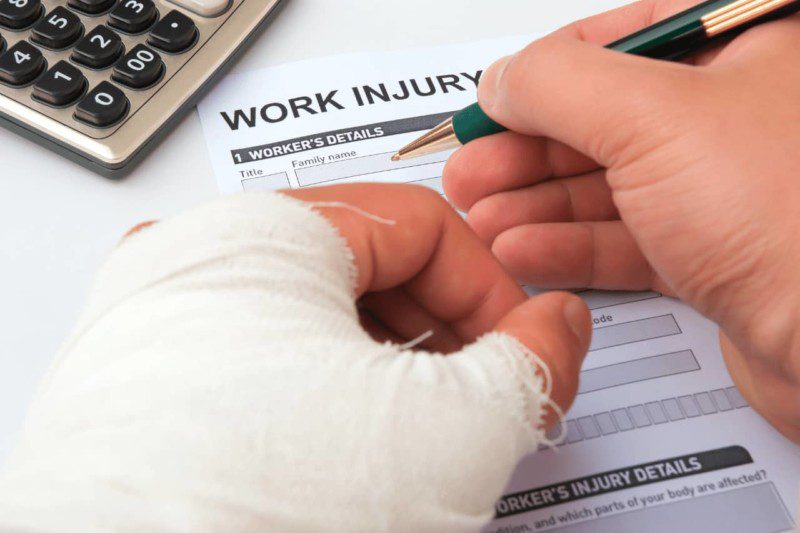If you are injured at work, it can be a difficult time. You may be wondering how you are supposed to be compensated for your injury.
In this blog post, we will discuss workers’ compensation and how it can help you get the money you need to cover your medical expenses and lost wages.
We will also discuss the different types of injuries that are covered by workers’ compensation and how to file a claim.
Compensation for a work injury – Everything you should know
Though we hope it doesn’t happen to anyone, being injured at work is not uncommon. The Occupational Safety and Health Administration (OSHA) reports over 2.8 million non-fatal workplace injuries in the United States each year. These accidents can be anything from minor cuts and bruises to more major issues like broken bones or concussions. If you, unfortunately, sustain an injury while on the job, familiarize yourself with the timeframe for receiving worker’s comp check, as well as what is included under workers’ compensation insurance coverage. Hence, you know what benefits you’re entitled to. If you are ever injured while on the job, it is important to know how to file a claim for workers’ compensation. You should also be aware of both your rights and your employer’s rights under the law.
What is workers’ compensation?
Workers’ compensation is an insurance system that provides benefits to employees who are injured or become ill because of their job. Workers’ compensation covers medical expenses, income replacement, and death benefits. It does not matter who was at fault for the injury or illness – as long as it is work-related, the employee qualifies for workers’ compensation benefits.
What types of injuries are covered by workers’ compensation?
Workers’ compensation usually totals coverage for any work-related injury. Injuries that happen right away, like falling, or injuries that occur over time, such as carpal tunnel syndrome, both fall under workers’ compensation. Additionally, if you have a condition prior to starting the job and it gets worse because of conditions at work (ex. lifting heavy objects when you have a bad back), your workers’ compensation claim is likely to get approved. On the other hand, injuries that occur unexpectedly, such as a heart attack, are not always covered.
What is not covered by workers’ compensation?
There are a few exceptions to what is covered under workers’ compensation. Injuries that take place outside of work, such as in the employee’s own home or during leisure activities, aren’t compensated. Also, self-inflicted injuries or those caused by employees’ negligence aren’t included. For example, if an employee ignores company policy and gets hurt, like climbing on top of a shelf unit, they can’t collect workers’ compensation benefits. On the other hand, if the employee does not wear protective equipment, even though it is available, and gets hurt as a result, they probably can get benefits. It’s also important to know that workers’ compensation does not cover pain and suffering. So, if you’re looking for reimbursement for your mental anguish or physical pain, you won’t find it under workers’ compensation.

How do I file a workers’ compensation claim?
If you are injured at work, you should notify your employer as soon as possible. The employer should, then, file a worker’s compensation claim in your name. You will need to provide your employer with information about the injury, such as how it occurred and when it occurred. You will also need to provide information about your medical treatment. Once your employer has filed the claim, you will be able to receive benefits. Most claims will have a waiting period of a few days to a week.
What benefits am I entitled to?
The workers’ compensation system is designed to provide benefits to employees who are injured or become ill because of their job. Employees who are injured at work are entitled to medical benefits, income replacement benefits, and death benefits.
- Medical benefits are designed to cover the cost of medical treatment for work-related injuries and illnesses. This includes the cost of hospitalization, surgery, prescription drugs, and rehabilitative services. While workers’ compensation will generally cover the cost of medical treatment, there may be some limits on the types of treatment that are covered. For example, workers’ compensation may not cover the cost of experimental treatments.
- Workers’ compensation income replacement benefits: These benefits will help to replace a portion of your lost wages if you are unable due to an injury. State workers’ compensation laws will dictate the amount of these benefits.
- Death benefits under workers’ compensation can provide financial assistance to the family of an employee who dies because of a work-related injury or illness. The number and amount of death benefits you receive will depend on your state’s workers’ compensation laws.
How long do I have to file a claim?
The length of time you have to file a workers’ compensation claim after sustaining an injury at work differs depending on the state in which the accident occurred. In some states, claimants have up to two years from the date of their injury to file a claim, while other states give injured workers only 30 days. For example, Florida requires that employees notify their employer of a workplace injury within 30 days or they will forfeit any benefits they may be entitled to receive.
It is important to know what is and isn’t covered by workers’ compensation, as well as the time limits for filing a claim. Workers’ compensation can provide crucial financial assistance to employees who are injured or become ill because of their job.



